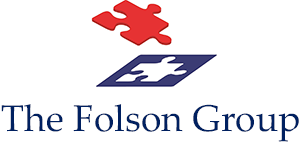The Heat is On!
Now that heating season is nearly over (trust me! It really is!), you are aware of all the problems that arose this year. You might even have some occasional outage, always on the coldest day of course. Well, believe it or not, before you start planning for summer- start planning for next winter! That’s right, winter preparations begin now. There are a few reasons for this:
next winter will be here before you know it.
act while it is still fresh in your mind, and
most major repairs can only be performed when the boiler is off!
That’s right, you can’t shut down your primary source of heat (and usually hot water) in freezing temperatures for hours or even days at a time. When your heating system is down for the summer, it is the optimal time to act! In addition, the engineers and mechanics that inspect the heating system often needs it to be turned on when performing the inspection. This makes spring the preferred time for all boiler repairs and upgrades, as opposed to the summer or fall. For obvious reasons, the winter is never a good time for upgrades or repairs to the heating system.
Even if the heating plant is functioning properly, your boiler needs to be maintained properly. Proper repair and maintenance is imperative in order to keep it running efficiently, effectively, and safely. Yearly inspections, cleaning, and upgrades such as maybe even new insulation are all a part of this.
A well-maintained and high performing boiler or heating and hot water system is not only needed for the comfort of the residents. It also contributes upto 70% on the energy usage in a typical building. So the crummy Letter D that you have posted in the lobby as part of LL33, is primarily driven by the efficiency of the heating plant. It is too late to get an improved grade this October, but any work that you do this year will show in the 2022 Letter Grade.
In addition, buildings need to also prepare for the upcoming implementation LL97 (Climate Mobilization Act). This law comes with the added feature of levying fines against buildings that are not meeting their benchmark for carbon output efficiency. The fines, beginning in 2024, can be as much as $100,000 per year for some buildings, so “lack of funding” should not be used as an excuse to avoid compliance.
Based on available data, it is estimated that 80% of buildings are meeting their 2024 benchmark. By 2030, this number reverses, showing that 80% of buildings are not meeting their benchmark. Here’s a calculator where you can add you can search for your building and find out your estimated fines.
If your building heating plant requires upgrades or you need an alternative bid to inspect and repair your building’s boiler, The Folson Group provides cost-saving construction contract administrative services that can save you up to 40% on the cost of your project. Email us at info@thefolsongroup.com or call us at (917) 648-8151 to find out more.

